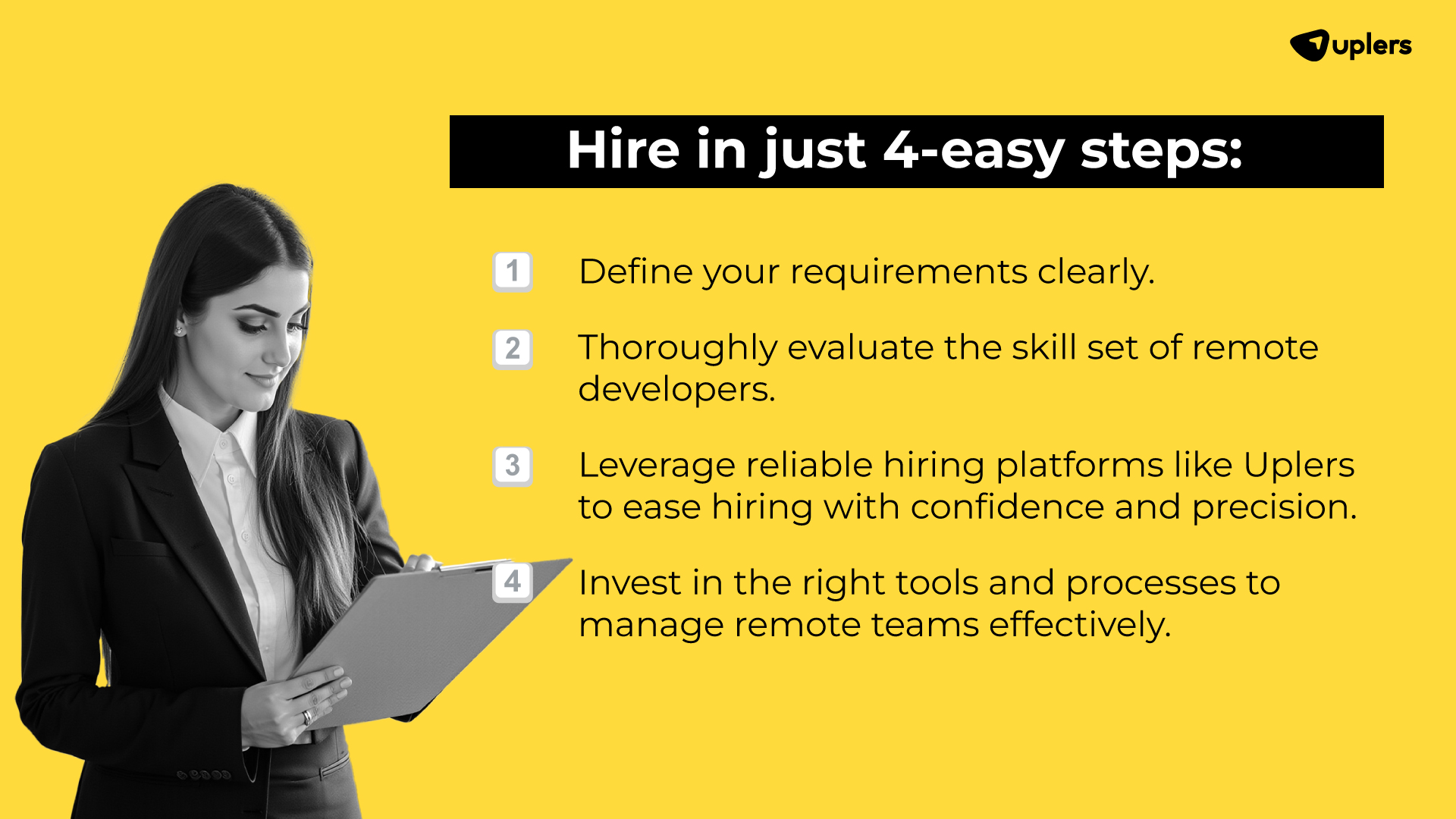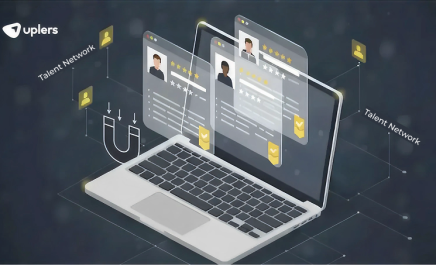What to Look for When You Hire ETL Developers in 2025
- Sathvik Poojary
- July 3, 2025
- 4 Minute Read

In the era that is defined by real-time analytics, AI-powered insights, and cloud-native data platforms, it can be obvious to think that traditional ETL (Extract, Transform, Load) roles are fading as a thing of the past. But in 2025, the opposite is true – ETL developers have become more critical than ever.
As tech organizations juggle between multiple data sources – from APIs, IoT devices to event streams and legacy systems – the need for skilled professionals is the new fad. With the modern stack evolving, these professionals must be able to design robust, scalable, and fault-tolerant data pipelines while keeping the fundamentals of data ingestion and transformation foundational.
In this blog, let’s break down the top skills and competencies that you must look for in ETL developer hiring in the current fast-paced and data-driven landscape.
Why ETL Developers Are Still Critical in the Age of Modern Data Stacks
Parts of the ETL process have been abstracted using modern tools such as Fivetran, Airbyte, and dbt, but they haven’t replaced the need for engineering expertise. Rather they have raised expectations.
When you hire ETL developers they must do more than just move data from point A to B. They must:
- Handle semi-structured and unstructured data.
- Ensure data integrity and quality across distributed systems.
- Work within cloud-native environments like AWS Glue, Azure Data Factory, and GCP Dataflow.
- Build pipelines that support real-time or near-real-time ingestion.
All in all, ETL developer role has evolved into a hybrid data engineer, playing a prominent role in analytics, AI readiness, and operational intelligence. This makes it more important than ever to be strategic in hiring these experts for your data team, especially when data holds supremacy as a competitive differentiator for product-led companies.
Core Technical Skills to Look for in ETL Developers
A modern ETL developer needs to be skilled in combining coding proficiency, platform fluency, and data engineering best practices. In the candidate screening stage, here are the top technical skills to assess:
- SQL mastery for complex transformations and data validation.
- Python, Scala, or Java for custom pipeline logic or orchestration.
- Familiarity with data serialization formats (JSON, Avro, Parquet).
- API integration experience for external data ingestion.
- Comfort working with containerized environments and CI/CD workflows.
If you are considering hiring big data developers, ETL engineers who can work within distributed frameworks like Spark, Flink, or Beam bring added value. This is especially true for processing large-scale datasets in batch or stream.
Experience with Popular ETL Tools and Frameworks in 2025
Tooling has evolved rapidly as we all know and thus a strong ETL developer needs to demonstrate hands-on experience with today’s most relevant platforms.
Key platforms and frameworks include:
- Apache Airflow for orchestration.
- AWS Glue or Azure Data Factory for serverless ETL in the cloud.
- dbt (Data Build Tool) for analytics engineering and transformation logic.
- Fivetran, Airbyte, or Hevo for connector-based ingestion.
- Workflow automation tools like Dagster or Prefect.
Automation and abstraction are part and parcel of these tools, but your ETL developer must understand what’s happening under the hood when things go haywire.
Understanding of Data Warehousing, Cloud Platforms, and Pipelines
The best ETL developers are ones who not only build scripts – but also architect systems that support long-term scalability and performance optimization. Evaluate their experience with:
- Data warehouses like Snowflake, BigQuery, or Redshift.
- Stream-based ingestion using Kafka or Kinesis.
- Cloud-native storage and compute optimization (S3, GCS, Data Lakehouses).
- Layered architectures that separate staging, raw, and analytics-ready zones.
Several companies are now exploring modern staffing alternatives to bring in ETL talent that can architect data platforms while remaining cost-efficient. This is more relevant in high-growth SaaS firms scaling their data operations on a lean team.
Data Quality, Validation, and Error Handling Best Practices
Bad data can result in bad decisions and that’s why data quality is a non-negotiable trait that you must evaluate when you hire ETL developers.
Key areas to explore include:
- Experience implementing data validation rules, constraints, and alerts.
- Familiarity with great_expectations, Deequ, or other data testing libraries.
- Strong logging and monitoring practices for catching pipeline failures.
- Ability to write tests and set up observability dashboards.
If you are trying to understand how to hire software developers with ETL expertise, focus on those that have built robust monitoring and validation into their workflows.
Ability to Optimize and Scale ETL Workflows
The data workloads are resource-intensive and poor optimization can result in cost overruns or performance bottlenecks. Therefore, the top ETL developers must:
- Make sensible use of clustering, partitioning, and incremental loading.
- Optimize queries for data warehouses in the cloud.
- Reduce latency by using trigger logic and appropriate scheduling.
- Steer clear of drift, duplicate data, and schema inconsistencies.
This optimization mindset is critical as teams now handle increasing data volumes and mounting infrastructure costs in cloud environments.

Final Thoughts: Building a Future-Ready Data Engineering Team
Despite automation and modern tools making their way into the market, the need to hire ETL developers with strong fundamentals, platform awareness, and architectural thinking remain mission-critical.
Whether it’s a high-throughput event-driven data pipeline or modernizing your warehouse architecture, ETL engineers serve as the backbone of reliable data systems. They ensure that your teams have the right data at the right time in the right format without any surprises.
The smartest move you can make to scale your teams is to blend in-house expertise with global specialized talent. Investing in top-tier engineering talent is a decision that will pay long-term dividends.






